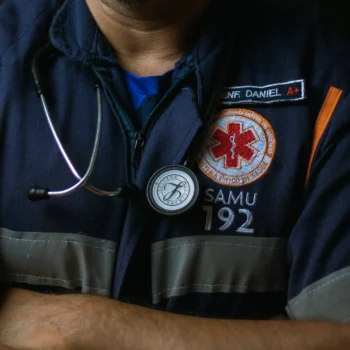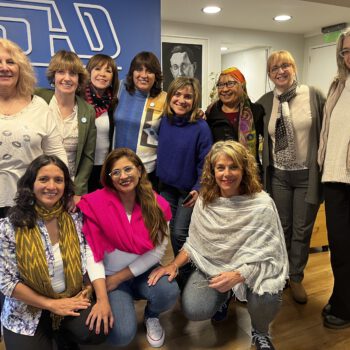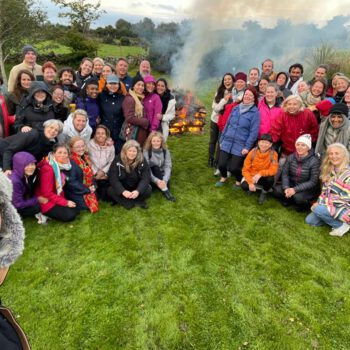Warren McCaig uses his counseling, Compassionate Inquiry®, psychedelic therapy, group facilitation and retreat training to offer experiences of authenticity, joy, and possibility. After working in the non-profit sector and pioneering social enterprise projects, he established an eco-lodge- retreat in Bolivia where he resided for almost 20 years, before returning to Canada.
This post references a short excerpt of Warren’s story of transformation and healing through Compassionate InquiryⓇ. Listen to his full interview on The Gifts of Trauma Podcast.
Photo credit: Stockcake
I am the hardest guy to forgive. But since my well of forgiveness for others is only as deep as my capacity to forgive myself, I’ve had to change. After all I can’t hold somebody who’s putting their life back together after an affair or a scandal and say, with integrity, you won’t be defined by this for the rest of your life, if I don’t believe it about myself.
Compassionate Inquiry® is a beautiful tool for facilitating self-forgiveness. It shows us how our trauma responses lead to disconnection, and in that state, how what we do harms ourselves and others. Forgiveness arises partially from understanding that while we all react, few of us actually choose to do harm. Seeing disconnection as the source of my reactions and behaviors made me feel worthy of forgiveness, able to seek forgiveness and forgive those who had wronged me.
Without forgiveness, there’s shame and a feeling of indebtedness to the past that I couldn’t escape. Like a high interest debt, every day it got a little heavier. Its weight limited my ability to experience life, relationship, or to feel hope for the future. In contrast, the experience of forgiveness created an opening for possibility.
The high interest debt of my past misdemeanors showed up as a frenetic drive to earn my right to have relationships, to be alive, to take in oxygen every day. I wanted to make a difference, to be the kind of person who cares for people, but no matter what I did, it was never enough. I became a ‘spiritual paramedic’ racing from one ‘accident site’ to another, never fully attending to others’ needs, just rushing to do everything for everyone, and often failing. And at first, I didn’t recognize that I was helping others to make myself feel better. An element of my brokenness was fueling this activity. Looking deeper, I saw that it also involved a pursuit of attention, and a pursuit of distraction. I kept returning to this cycle as it reduced my sense of ‘not enough-ness’.
After working with many with alcohol and drug issues, I view my own trauma response, this frenetic helping, as a blessing. If I’d turned to drugs or alcohol with the enthusiasm with which I pursued most things, I probably wouldn’t be here today. High interest debt can show up as substance abuse and behavioral addictions, such as overachieving, working too much, eating too much, buying too much, exercising too much… But the number one indicator of high interest indebtedness is a lack of peace. Many are driven in ways similar to mine, but we’re harder to spot than substance abusers, as society applauds our actions. I have spent time with people whose brokenness pushed them to drugs and alcohol. But I’ve spent far more time with people whose brokenness pushed them to achieve, or to prove their worth, through some type of high performance.
For many of us, the experience of inner discord and noisiness that high interest indebtedness creates is a noise so pervasive, so much part of my basic operating system that I couldn’t conceive of anything else.. This traumatic, disconnected, indebted sensation was, like my glasses, the lens through which I experienced everything: Relationships, sexuality, nature, food, the economy… all were shaped by this noise.
Wanting something different led me to psychedelics. Without well supported, structured psychedelic assisted therapy, I doubt I would have ever taken off those glasses, or seen another way of being.
If you’re recognizing that you’re working or eating too much, being blinded by your drive to do what helps you feel a little bit better… If you want to stop the exhaustion, the noise, and find some peace…there is a path.
A good first step is to find a Compassionate Inquiry® practitioner to understand and process what shaped your actions and feel into what else is possible.
Next, recognize that your profound sense of loneliness and insufficiency is not just a result of your childhood wounds. It’s reinforced by a culture engineered to consistently amplify those sensations, as they make us extremely good consumers and participants in a system that does not have our best interests at heart. To manage this cultural component, the second step is to create some sort of social fabric in your life. This requires support, as growing up in a hyper individualized culture, our rituals, rites of passage and group cathartic experiences have been taken away. We no longer know how to build social fabric, because we’ve been raised with very little, by people who were raised with even less.
I believe that at a deep level, we all want to belong to communities of people we can depend on, who can in turn depend on us. Our sense of significance in the world comes from how we show up in relationship, not the prevalent cultural definitions; the illusion of financial independence or the status of economic achievement.
So the third step is honesty. Forgiveness can dramatically transform lives, but it requires truth. We can’t dress up or minimize our actions. We have to hold them in their wholeness and say, “That was as bad of a thing as you could have done there, and I don’t believe it makes you a bad person.” Or, “society will judge you for what you did. I will hold you with gentleness and care, because I don’t see it as substantively different from my shortcomings.”
Wouldn’t it be beautiful if we could learn to meet each other with love, grace, reverence, compassion and forgiveness within some form of social fabric that relieves us of our high interest indebtedness? A social fabric made up of compassionate, connected people who hold us and say, it’s okay, we’ve got you. Wouldn’t that make a huge difference in a lot of people’s lives?
– – –
The Gifts of Trauma is a weekly podcast that features personal stories of trauma, healing, transformation, and the gifts revealed on the path to authenticity. Listen to the interview, and if you like it, please subscribe and share.




Comments are closed.